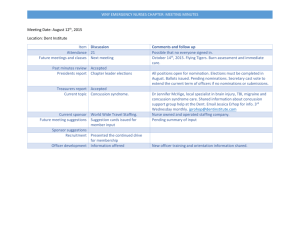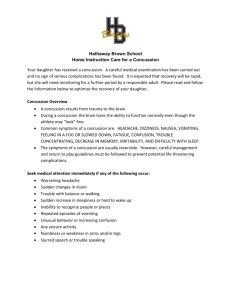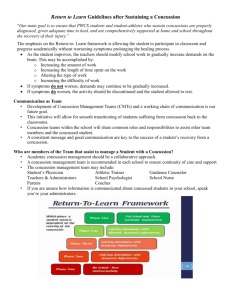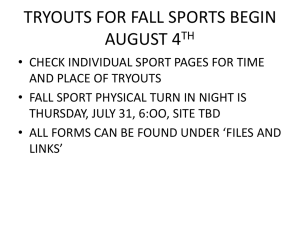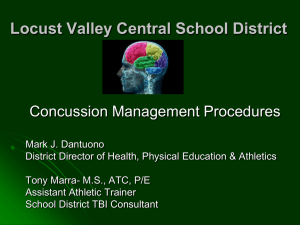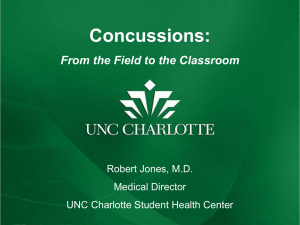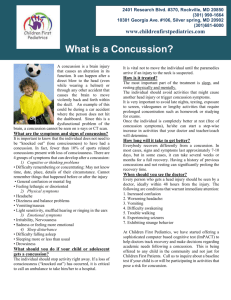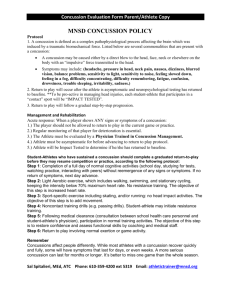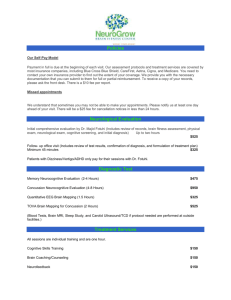Concussion Care: A Practical Approach to - PHATS
advertisement
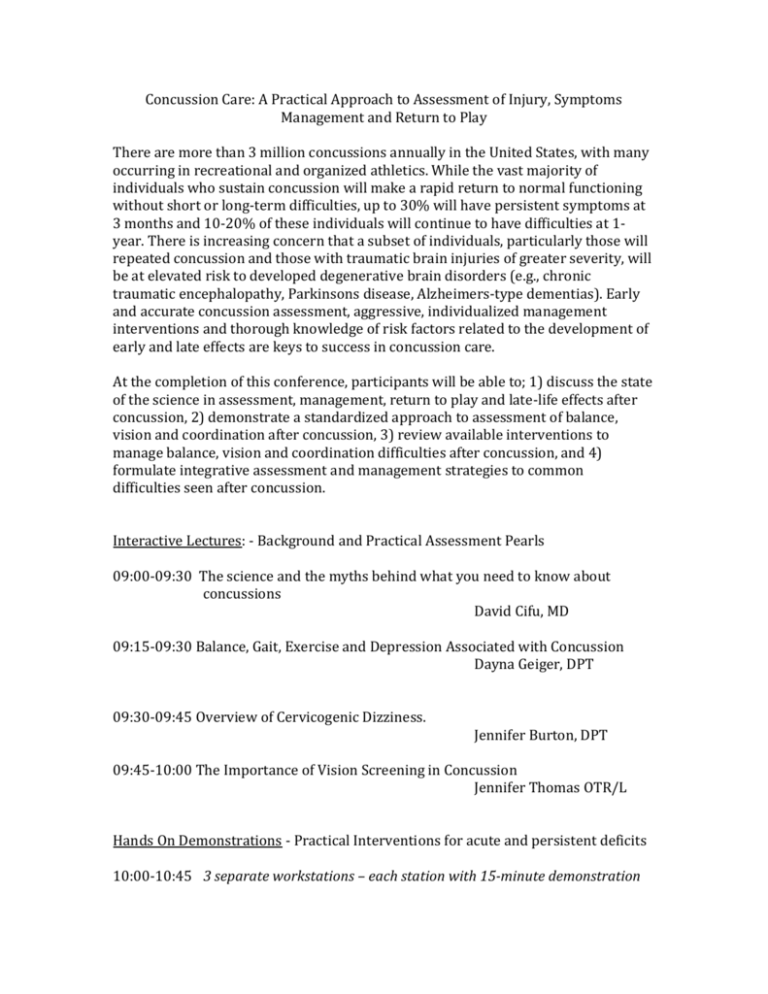
Concussion Care: A Practical Approach to Assessment of Injury, Symptoms Management and Return to Play There are more than 3 million concussions annually in the United States, with many occurring in recreational and organized athletics. While the vast majority of individuals who sustain concussion will make a rapid return to normal functioning without short or long-term difficulties, up to 30% will have persistent symptoms at 3 months and 10-20% of these individuals will continue to have difficulties at 1year. There is increasing concern that a subset of individuals, particularly those will repeated concussion and those with traumatic brain injuries of greater severity, will be at elevated risk to developed degenerative brain disorders (e.g., chronic traumatic encephalopathy, Parkinsons disease, Alzheimers-type dementias). Early and accurate concussion assessment, aggressive, individualized management interventions and thorough knowledge of risk factors related to the development of early and late effects are keys to success in concussion care. At the completion of this conference, participants will be able to; 1) discuss the state of the science in assessment, management, return to play and late-life effects after concussion, 2) demonstrate a standardized approach to assessment of balance, vision and coordination after concussion, 3) review available interventions to manage balance, vision and coordination difficulties after concussion, and 4) formulate integrative assessment and management strategies to common difficulties seen after concussion. Interactive Lectures: - Background and Practical Assessment Pearls 09:00-09:30 The science and the myths behind what you need to know about concussions David Cifu, MD 09:15-09:30 Balance, Gait, Exercise and Depression Associated with Concussion Dayna Geiger, DPT 09:30-09:45 Overview of Cervicogenic Dizziness. Jennifer Burton, DPT 09:45-10:00 The Importance of Vision Screening in Concussion Jennifer Thomas OTR/L Hands On Demonstrations - Practical Interventions for acute and persistent deficits 10:00-10:45 3 separate workstations – each station with 15-minute demonstration Joint position error target assessment related to cervicogenic dizziness - Burton King-Devick Test, brief vision screen for range of motion, and saccades - Thomas Dynamic balance and gait testing with treatment strategies Geiger 10:45-11:00 Break 11:00-11:45 3 separate workstations – each station with 15-minute demonstration Vision treatment: Marsden ball, Kirschner arrows - Thomas Joint position error target treatment progression related to cervicogenic dizziness - Burton Do I need to rest? – Assessing return to exercise, sport and team participation -- Geiger 11:45-12:00 Questions and Answers Seminar Faculty Coordinator David X. Cifu, MD Professor and Chairman Department of PMR, Virginia Commonwealth University National Director, PM&R Services U.S. Department of Veterans Affairs Principal Investigator, Chronic Effects of Neurotrauma Consortium (CENC) U.S. Department of Defense and Veterans Affairs Speakers Jennifer Burton, DPT Physical Therapist, Concussion Program Salt Lake City VAMC JenniferThomas, OTR/L Occupational Therapist, Concussion Program Salt Lake City VAMC Dayna Geiger, DPT Physical Therapist, Concussion Program Salt Lake City VAMC
